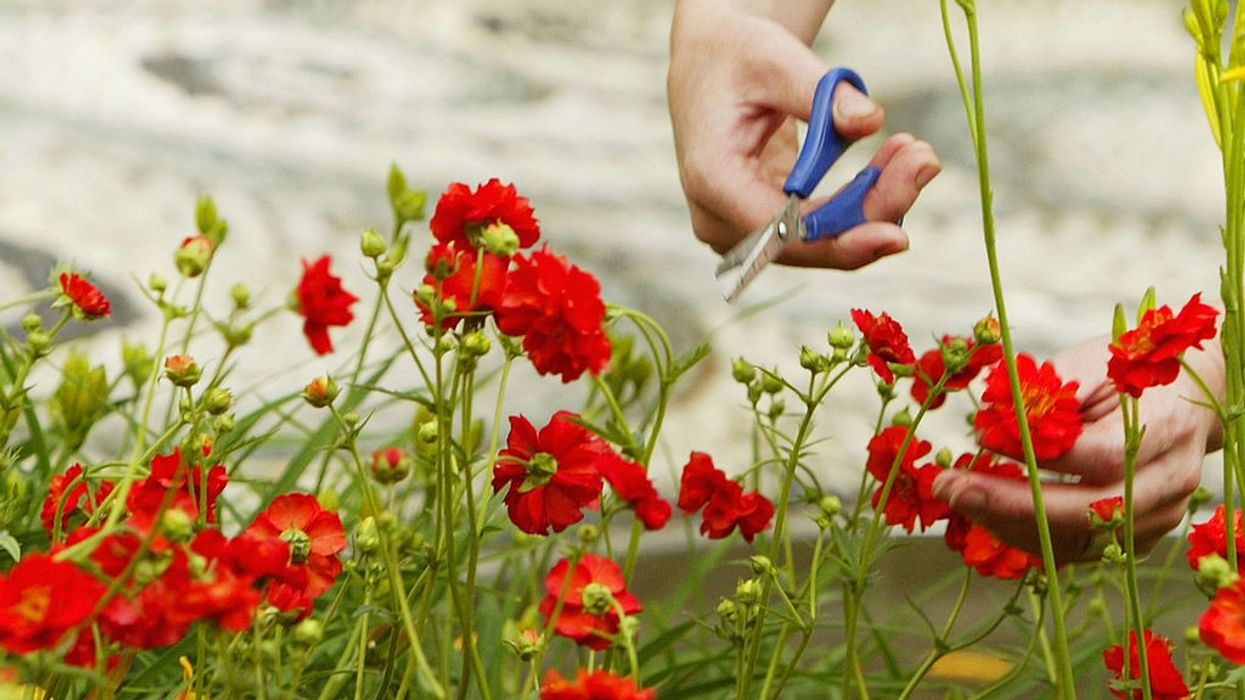While getting more exercise, eating right, and making new friends are all good habits, new CU Boulder research suggests the addition of gardening can have a powerful impact.
Funded by the American Cancer Society, the first-ever, randomized, controlled trial of community gardening found that those who started gardening ate more fiber and got more physical activity--two known ways to reduce the risk of cancer and chronic diseases. They also saw their levels of stress and anxiety significantly decrease. The findings were published in the journal Lancet Planetary Health.
"These findings provide concrete evidence that community gardening could play an important role in preventing cancer, chronic diseases, and mental health disorders," said senior author Jill Litt, a professor in the Department of Environmental Studies at CU Boulder.
Filling the research gap
Litt has spent much of her career seeking to identify affordable, scalable, and sustainable ways to reduce disease risk, especially among low-income communities.
Gardening seemed an ideal place to start.
"No matter where you go, people say there's just something about gardening that makes them feel better," said Litt, who is also a researcher with the Barcelona Institute for Global Health.
But solid science on its benefits is hard to come by. Without evidence, it's hard to get support for new programs, she said.
Some small observational studies have found that people who garden tend to eat more fruits and vegetables and have a healthier weight. But it has been unclear whether healthier people just tend to garden or whether gardening influences health.
Only three studies have applied the gold standard of scientific research, the randomized controlled trial, to the pastime. None have looked specifically at community gardening.
To fill the gap, Litt recruited 291 non-gardening adults, an average age of 41, from the Denver area. More than a third were Hispanic and more than half came from low-income households.
After the last spring frost, half were assigned to the community gardening group and half to a control group that was asked to wait one year to start gardening.
The gardening group received a free community garden plot, some seeds and seedlings, and an introductory gardening course through the nonprofit Denver Urban Gardens program and a study partner.
Both groups took periodic surveys about their nutritional intake and mental health, underwent body measurements, and wore activity monitors.
A fibre boost
By fall, those in the gardening group were eating, on average, 1.4 grams more fibre per day than the control group--an increase of about 7 per cent.
The authors note that fibre exerts a profound effect on inflammatory and immune responses, influencing everything from how we metabolize food to how healthy our gut microbiome is to how susceptible we are to diabetes and certain cancers.
While doctors recommend about 25 to 38 grams of fibre per day, the average adult consumes less than 16 grams.
"An increase of one gram of fibre can have large, positive effects on health," said co-author James Hebert, director of the University of South Carolina's cancer prevention and control program.
The gardening group also increased their physical activity levels by about 42 minutes per week. Public health agencies recommend at least 150 minutes of physical activity per week, a recommendation only a quarter of the U.S. population meets. With just two to three visits to the community garden weekly, participants met 28 per cent of that requirement.
Study participants also saw their stress and anxiety levels decrease, with those who came into the study most stressed and anxious seeing the greatest reduction in mental health issues.
The study also confirmed that even novice gardeners can reap measurable health benefits of the pastime in their first season. As they have more experience and enjoy greater yields, Litt suspects such benefits will increase.
Blooming relationships
The study results don't surprise Linda Appel Lipsius, executive director of Denver Urban Gardens (DUG), a 43-year-old nonprofit that helps about 18,000 people each year grow their own food in community garden plots.
"It's transformational, even life-saving, for so many people," Lipsius said.
Many DUG participants live in areas where access to affordable fresh fruits and vegetables is otherwise extremely limited. Some are low-income immigrants now living in apartments--having a garden plot allows them to grow food from their home country and pass on traditional recipes to their family and neighbours.
The social connection is also huge.
"Even if you come to the garden looking to grow your food on your own in a quiet place, you start to look at your neighbour's plot and share techniques and recipes, and over time relationships bloom," said Litt, noting that while gardening alone is good for you, gardening in the community may have additional benefits. "It's not just about the fruits and vegetables. It's also about being in a natural space outdoors together with others."
Litt said she hopes the findings will encourage health professionals, policymakers and land planners to look to community gardens, and other spaces that encourage people to come together in nature, as a vital part of the public health system. The evidence is clear, she said.
(ANI)




